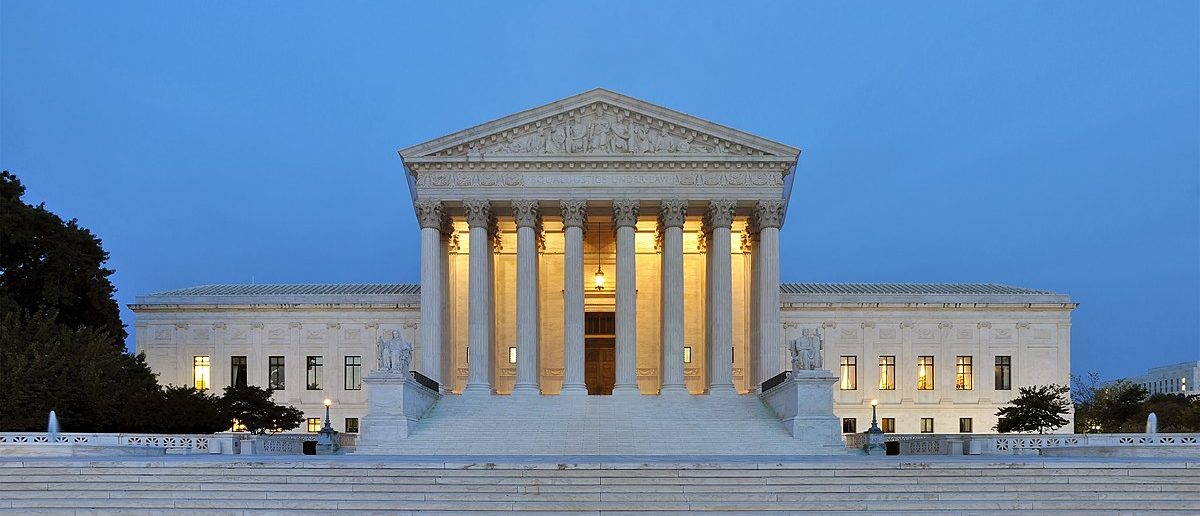conflict
Columbia on Lockdown After pro-Palestinian Protesters Take Over Building, Hold Janitors Hostage

From Heartland Daily News
Columbia University locked down its campus Tuesday to everyone but essential personnel and students after anti-Israel protesters smashed windows and barricaded themselves inside Hamilton Hall early in the morning.
A staff member in the building at the time said he was temporarily taken hostage, The Columbia Spectator reports.
As of 9 a.m. Tuesday, the New York university even barred the media from campus “as a safety measure,” a news update states.
“Access to campus has been limited to students residing in residential buildings on campus and employees who provide essential services to campus buildings, labs, and residential student life,” according to the announcement.
The Spectator reports more:
The [lock down] comes six hours after around three dozen protesters occupied Hamilton Hall, pledging to remain inside the building until the University meets its stated demands, including divestment from Israel, financial transparency, and amnesty for students detained and suspended in the mass arrests on April 18.
Protesters sealed off the building minutes after entry, barricading the doors with wooden tables, chairs, and zip ties. Demonstrators outside moved the metal tables outside Hartley Hall to the front of the doors, securing them shut with ropes and zip ties.
A facilities worker said he was temporarily held hostage but allowed to leave about 10 minutes later, according to the student newspaper. Later, two other janitors said they also were temporarily held hostage, according to Fox News.
Columbia has fallen
Pro-Palestinian protesters have reportedly taken a building by force and barricaded themselves inpic.twitter.com/fhFbOmZVwY
— The College Fix (@CollegeFix) April 30, 2024
Several students also reported being assaulted by protesters trying to enter the building, according to an X video by freelance reporter Jessica Schwalb.
Student is assaulted by mob. @NYPDDaughtry Many students have called the police but where are you???
We are in danger. pic.twitter.com/ghZWuMgb6y
— Jessica Schwalb (@jessicaschwalb7) April 30, 2024
Pro-Palestinian protests have been going on for weeks at Columbia, with some demonstrators establishing a “Gaza Solidarity Encampment” on the lawn.
On Monday, university spokesperson Ben Chang said students began receiving suspension notices after ignoring repeated warnings to leave their encampment by 2 p.m. that day.
“Students who agreed to leave and sign a form committing to abide by University policies will be allowed to complete the semester,” Chang said in a campus update.
Some faculty members, many of them wearing masks, joined the protesters just ahead of the 2 p.m. deadline, locking arms to form a human chain around the encampment, according to videos on X.
Unbelievable. Columbia faculty lock arms to prevent police from clearing the encampment. Why do they still have jobs? pic.twitter.com/XrKlNCOx3q
— Ian Miles Cheong (@stillgray) April 29, 2024
As of Tuesday morning, the pro-Palestinian demonstrators continue to occupy the building. The Spectator reports New York Police Department officers have been at the scene since about 12:45 a.m. but have not entered the building.
conflict
Victor Davis Hanson Makes a Disturbing Prediction About What Happens If Iran Survives
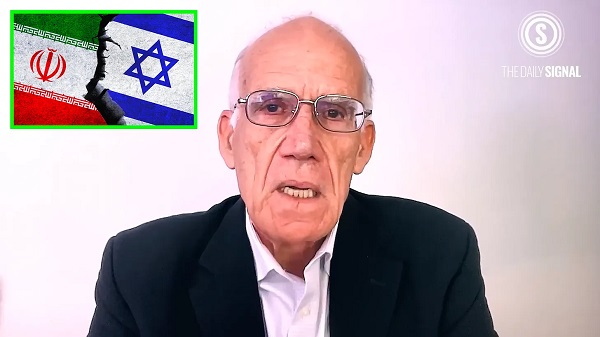
Amidst rough seas, you need a steady sailor.
Not just what’s happening, but what’s coming next.
“I think we’re going to see things that we haven’t seen in our lifetime in the Middle East,” he said.
This could go one of two ways, neither is small.
Victor Davis Hanson isn’t known for hyperbole. So when he opens with a warning like this, people pay attention:
“We are at an historic time in the Middle East,” he said.
“Never in our lifetimes have we been closer to a complete revolutionary fervor that gives promise of normalcy for the Middle East. And never have we been in more danger of seeing the entire region blow up.”
The paradox is striking.
Peace may be closer than ever, but so is total collapse.
And at the center of it all is the unfolding conflict between Iran and Israel, which Hanson called “surreal.”
Reflecting on the rapid collapse of Iran’s regional dominance, Hanson admitted that even a few years ago, this moment would have been unthinkable.
“If we had this conversation five years ago,” he said, “and I said to you, the Iranian nation that is huge compared to Israel, ten times the population, the Iranian nation has lost all control of the Houthi terrorists, and they are themselves neutered…”
He pointed to a chain reaction across the region: Iran’s proxy forces in Gaza and the West Bank have been neutralized. Hezbollah, once a feared military force, is now dormant.
“They’re gone as a Hamas, as a fighting force. The formidable, the terrifying Hezbollah cadres, they’re inert.”
The chaos in Syria, once a stronghold of Iranian influence, now seems to be working against Tehran.
“There is no more Syria, the Assad dynasty, the pro-Iranian, the Syria. It’s in chaos. But whatever the chaos is, seems to be anti-Iranian.”
The collapse is strategic, not just symbolic. Hanson noted that the so-called “Shia crescent” connecting Tehran to the Mediterranean is no longer intact.
“Lebanon is free of Iranian influence. So is Syria. Gaza, a de facto, will be.”
Even Russia, once a key ally, is no longer a player in the region.
“It’s tied down in Ukraine,” he said.
“Iran itself, the formidable powerhouse of the Middle East that evoked terror all over, has no defenses.”
Over the course of just five days, Israel has launched a targeted military campaign to dismantle Iran’s strategic infrastructure.
According to Hanson, the damage has been sweeping.
“They have dismantled all of the Iranian missile defenses. They have dismantled the terrorist hierarchy. They have dismantled the people who are responsible for the nuclear program.”
And yet, there’s risk.
“The Iranians have sent over 400 ballistic missiles and drones into Israel,” he said, “and 90 percent are stop. But that 10 percent gets through.”
Which brings us to the turning point.
All of this only matters if it ends with Iran’s theocracy on the brink of collapse.
If it doesn’t, everything that’s been gained could be erased.
“All of this chaos and all of this war will be for not if Iran’s theocracy emerges intact from this war.”
Even more dangerous, he added, would be a scenario in which the country’s nuclear infrastructure survives or can be quickly rebuilt.
That possibility has triggered one of the most urgent strategic questions on the table: Can Israel finish the job?
Or will it need help from the United States to strike Iran’s deeply buried nuclear facilities?
This is where things get complicated.
Under the “America First” foreign policy doctrine, Trump has been clear: no more forever wars, no more ground troops in the Middle East.
But Hanson argued that Trump’s actions tell a deeper story.
“I’m not an isolationist, I’m a Jacksonian,” he said, echoing what Trump might say.
“You should have known that when I took out Soleimani… when I took out Baghdadi… when I took out the Wagner Group.”
The message? Trump doesn’t go looking for wars. But when deterrence is at stake, he’s not afraid to act decisively.
Still, Hanson posed a chilling question: what if the Iranian regime survives?
“If this war should end with the Iranian regime intact and the elements of its nuclear program recoverable,” he warned, “then in some ways it will be all for naught.”
Despite Iran’s military losses, its media destruction and its isolated position, surviving such a coordinated strike could give it something even more powerful than weapons: perceived invincibility.
“It will be more like, oh my gosh, Iran survived everything that Israel, and by association the United States, threw at it.”
“It’s indestructible.”
And that, Hanson suggested, would be the real danger.
Not just a return to the status quo, but a shift in perception that emboldens the regime and reshapes the balance of power across the region.
Now the question hanging over the entire conflict is this: does the world play it safe and allow remnants of Iran’s nuclear infrastructure to survive?
Or risk a final strike that could eliminate the threat for good, but possibly trigger even greater instability?
“Do you risk more danger by taking out and eliminating the nuclear threat for good,” Hanson asked, “and by association, you humiliate the theocracy to the point it can be overthrown?”
That’s the gamble.
He didn’t shy away from his own discomfort with war.
“I don’t like forever wars,” he added.
“I don’t like preemptive wars. I do not like the United States intervening anywhere in that godforsaken area. But if the war ends with the regime intact and a recoverable nuclear program, it won’t just be back to square one. It will be a disaster.”
That’s when he dropped a bombshell prediction of the future in the area after the dust settles in the desert.
Whether this ends in collapse or resurgence, Hanson believes the next phase of the war could reshape the entire region and the world’s understanding of power in the Middle East.
“So we’ll see what happens,” he said.
“And hold on, everybody. I think we’re going to see things that we haven’t seen in our lifetime in the Middle East. And it could turn out very bad.”
“But it could also turn out to be quite revolutionary and remake the map of the entire region.”
This story was made possible with the help of Overton —I couldn’t have done it without him.
If you’d like to support his growing network, consider subscribing for the month or the year. Your support helps him expand his team and cover more stories like this one.
We both truly appreciate your support!
Subscribe to The Vigilant Fox
conflict
Trump dismisses US intelligence that Iran wasn’t pursuing nuclear bomb before Israeli attack

From LifeSiteNews
By Dave DeCamp
When asked about Tulsi Gabbard’s assessment, President Trump said, ‘I don’t care what she said. I think they’re very close to having [a nuclear weapon].’
Ahead of Israel’s attacks on Iran, U.S. intelligence assessed that Iran was not pursuing nuclear weapons and that even if it chose to do so, it would take up to three years for Tehran to be able to produce and deliver a nuclear bomb against a target of its choosing, CNN reported on Tuesday, citing people familiar with the intelligence.
The U.S. assessment goes against the claims from Israeli Prime Minister Benjamin Netanyahu, who launched the war under the pretext of preventing Iran from obtaining a nuclear weapon. But President Trump appears to be taking Israel’s word over his own intelligence agencies, as he told reporters that he didn’t care about his director of national intelligence’s assessment on the issue.
In March, DNI Tulsi Gabbard said that “Iran is not building a nuclear weapon and Supreme Leader Khamenei has not authorized the nuclear weapons program he suspended in 2003.” Her assessment was reflected in the Intelligence Community’s annual threat assessment.
When asked about this assessment, President Trump said, “I don’t care what she said. I think they’re very close to having [a nuclear weapon].”
Netanyahu claimed in an interview on Sunday that he shared intelligence with the U.S. that Iran could have developed a nuclear weapon within months or a year, although that was not the conclusion of U.S. intelligence agencies, based on the CNN report. But even based on Netanyahu’s own timeline, the U.S. would have had time to continue negotiations with Iran.
Israel attacked Iran two days before another round of negotiations between the U.S. and Iran was set to be held. Trump had been demanding that Iran eliminate its nuclear enrichment program, which was a non-starter for Tehran. Despite the apparent impasse, Iran was set to present a counter-proposal to the U.S., but the talks were canceled after Israel launched its war.
Reprinted with permission from Antiwar.com.
-
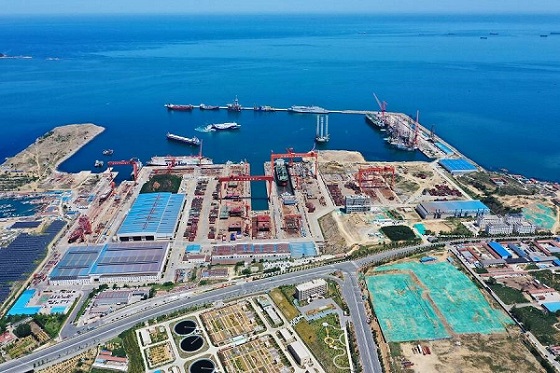
 Business10 hours ago
Business10 hours agoOttawa Slams Eby Government Over Chinese Shipyard Deal, Citing Security and Sovereignty Risks
-

 conflict1 day ago
conflict1 day agoVictor Davis Hanson Makes a Disturbing Prediction About What Happens If Iran Survives
-

 Banks22 hours ago
Banks22 hours agoTop Canadian bank studies possible use of digital dollar for ‘basic’ online payments
-
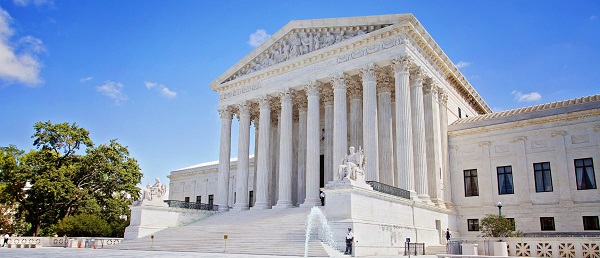
 Automotive1 day ago
Automotive1 day agoSupreme Court Delivers Blow To California EV Mandates
-

 Automotive11 hours ago
Automotive11 hours agoCarney’s exercise in stupidity
-

 Alberta1 day ago
Alberta1 day agoAlberta Trailblazing On Property Rights Protections
-

 Alberta12 hours ago
Alberta12 hours agoHigh costs, low returns – Canada’s wildly expensive emissions cap
-
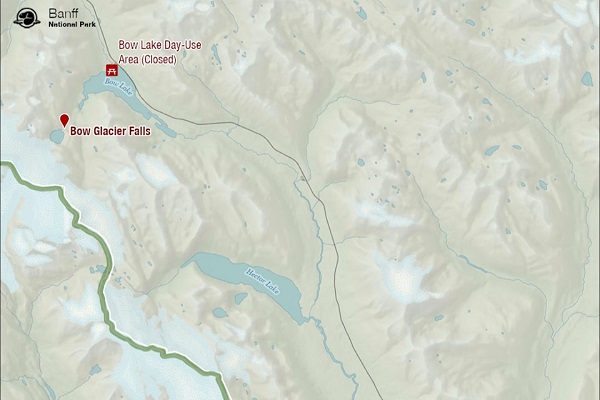
 Alberta1 day ago
Alberta1 day agoSecond body recovered from Bow Glacier Falls rockslide. Police identify first victim

